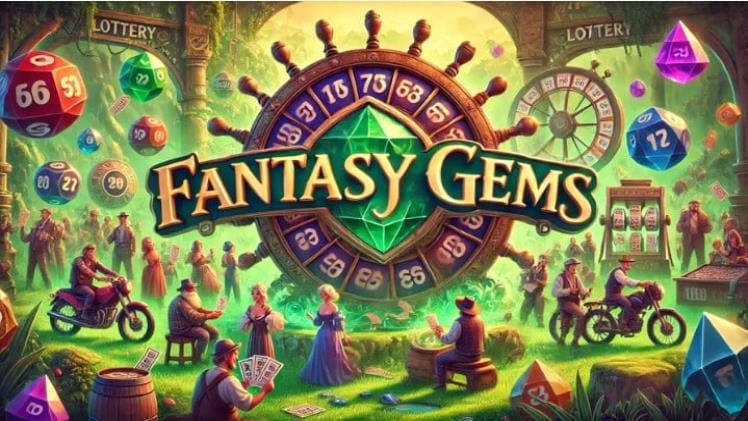So, you’re ready to dive into the world of multiplayer online games? Whether you’re looking to team up with friends, challenge strangers, or simply enjoy an interactive gaming experience, stepping into online multiplayer gaming can feel overwhelming at first. The idea of competing against seasoned players, understanding different game mechanics, and keeping up with fast-paced action may seem like a lot to handle. But don’t worry—you’re not alone. Every pro gamer was once a beginner, and with the right approach, you can find your way into this thrilling world. This guide will take you through everything you need to know to get started, from choosing the right game to understanding strategies that will help you level up quickly. Along the way, we’ll tackle common frustrations and offer smart solutions so you can enjoy the journey without unnecessary stress.
Table of Contents
- 1 Choosing the Right Multiplayer Game for You
- 2 Setting Up Your Gaming Environment
- 3 Understanding Game Mechanics and Controls
- 4 Playing with Friends vs. Playing Solo
- 5 Dealing with Toxicity and Online Competition
- 6 Improving Your Skills Over Time
- 7 Managing In-Game Purchases and Microtransactions
- 8 Staying Updated with Game Updates and Trends
- 9 Conclusion
Choosing the Right Multiplayer Game for You
One of the first and most important steps is selecting a game that aligns with your interests and skill level. Multiplayer games come in various genres, including first-person shooters (FPS), role-playing games (RPGs), real-time strategy (RTS), and battle royales, among others. If you’re drawn to strategic thinking and teamwork, an RPG might be the perfect fit, where you can join guilds and work together to complete missions. If fast reflexes and action-packed gameplay excite you, an FPS game like Call of Duty or Overwatch may be more suitable. Then, there are casino-based multiplayer games, such as slot qq games and poker online games, which combine elements of skill and luck, offering an interactive gambling experience. Choosing a game that genuinely interests you will make the learning curve feel less like a chore and more like an exciting adventure.
Setting Up Your Gaming Environment
Once you’ve chosen your game, the next step is to ensure you have the right setup. A stable internet connection is crucial, as lag can ruin your experience and put you at a disadvantage against other players. Invest in a gaming headset with a clear microphone if the game requires voice communication. A comfortable gaming chair and ergonomic setup will help prevent strain during long gaming sessions. Additionally, consider whether a console, PC, or mobile device suits your gaming preferences best. PC gamers may need to fine-tune graphics settings for optimal performance, while console players should ensure their controllers are responsive and in good condition. Keeping your environment comfortable and optimized for gaming will enhance your overall experience and keep you engaged for longer sessions.
Understanding Game Mechanics and Controls
Every multiplayer game has a unique set of rules, controls, and mechanics, and mastering these is key to enjoying the game fully. Many games provide tutorials for new players—don’t skip these! They can give you a basic understanding of movement, attacks, and defensive maneuvers. Additionally, watching tutorial videos on YouTube or joining online forums can help you learn advanced techniques from experienced players. Many games also have training modes where you can practice before jumping into real matches. Take your time to familiarize yourself with the mechanics, as rushing in without understanding the game can lead to frustration and repeated losses.
Playing with Friends vs. Playing Solo
One of the biggest draws of multiplayer games is the ability to team up with friends. Playing with a group can make the experience more fun, as you’ll have reliable teammates and better communication. However, if your friends aren’t available or you prefer playing solo, you can still enjoy the game by joining online communities where you can meet like-minded players. Many multiplayer games feature matchmaking systems that allow you to play with strangers of similar skill levels. While solo gaming gives you the freedom to improve your skills independently, playing with a team can offer valuable lessons in teamwork, communication, and strategy.
Dealing with Toxicity and Online Competition
One downside of multiplayer gaming is encountering toxic players. Trash-talking, rude behavior, and unfair gameplay tactics are common issues, but they shouldn’t discourage you from enjoying the game. Most online games provide reporting systems to handle toxic behavior, so don’t hesitate to use them. Muting toxic players and focusing on your own game is often the best approach. Another common frustration is facing highly skilled players when you’re just starting out. It can feel discouraging to lose repeatedly, but every loss is a learning opportunity. Instead of giving up, analyze your mistakes, watch replays if available, and gradually refine your strategies.
Improving Your Skills Over Time
The key to getting better at multiplayer games is consistent practice. Every time you play, you’ll develop a deeper understanding of strategies, improve reaction times, and learn how to handle different situations. Some games have ranked modes where you can track your progress as you climb the competitive ladder. Engaging with gaming communities, watching expert streamers, and participating in discussions on Reddit or Discord can also provide insights and tips that accelerate your growth. Additionally, don’t be afraid to step out of your comfort zone and try new tactics—experimentation is essential for skill development.
Managing In-Game Purchases and Microtransactions
Many multiplayer games offer in-game purchases, from cosmetic items to game-enhancing power-ups. While some purchases are purely for aesthetic purposes, others can give players an advantage, leading to a “pay-to-win” dynamic in certain games. It’s important to set a budget and avoid spending impulsively. If the game offers loot boxes or random rewards, be mindful of how much you’re spending, as these mechanics can be addictive. Games like slot games and poker games also require a smart approach to in-game spending, as they involve both strategy and luck. Knowing when to invest and when to hold back will ensure you enjoy the game without financial regrets.
Staying Updated with Game Updates and Trends
Multiplayer games evolve over time with new updates, patches, and seasonal events. Staying informed about these changes can give you an edge, as developers often tweak game mechanics, add new content, and fix bugs. Follow official social media pages, join gaming communities, and read patch notes to stay updated. Adapting to new changes quickly will keep you competitive and prevent you from falling behind other players.
Conclusion
Starting with multiplayer online games can be both exciting and challenging, but with the right mindset and approach, it becomes an incredibly rewarding experience. Choosing the right game, setting up a comfortable environment, understanding mechanics, and continuously improving your skills will help you grow as a gamer. Dealing with competition and toxic behavior is part of the journey, but learning to navigate these challenges makes the experience even more fulfilling. Whether you’re looking to play for fun, connect with friends, or compete at a high level, multiplayer gaming offers something for everyone. So gear up, stay patient, and enjoy the adventure ahead!




